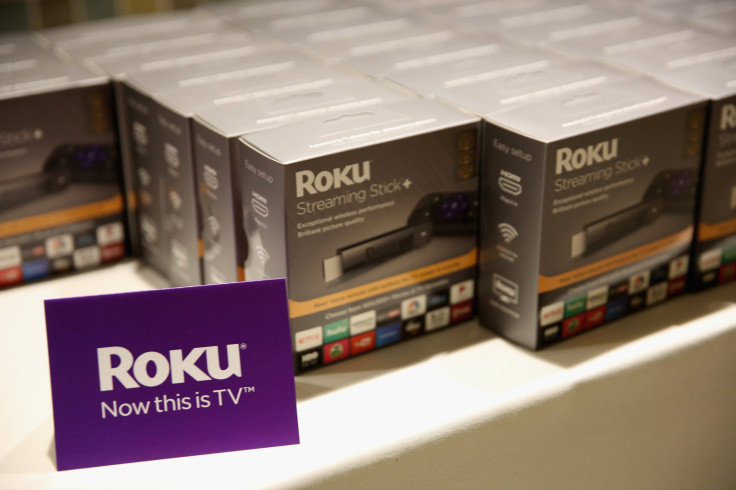Roku Soars 10% On Accelerating Revenue Growth And Shrinking Losses

Expectations were high going into Roku's (NASDAQ:ROKU) second-quarter financial report. To understand just how much the company had riding on its earnings, consider this: The stock has gained more than 234% in 2019, making it one of the biggest winners of the year. In recent weeks it also hit a new all-time high as investor enthusiasm has grown.
With that type of run-up in the rearview mirror, Roku would need to deliver strong results in order to maintain its forward momentum -- and the company delivered all that investors were hoping for and more, sending shares up more than 10% in after-hours trading Wednesday.
Growth continues to soar
Roku reported net revenue of $250.1 million, up 59% year over year, sailing past analysts' consensus estimates of $224.2 million, while also exceeding the high end of management's guidance, which had topped out at $225 million. Even more impressive, it accelerated from the 57% year-over-year growth Roku reported in the prior-year quarter.
That robust growth carried down to the bottom line, as Roku reported adjusted EBITDA(earnings before interest, taxes, depreciation, and amortization) of $11.1 million, up 56% year over year; this resulted in a net loss per share of $0.08, far better than the loss of $0.22 expected by those who follow the stock.
Impressive segment results
Investors didn't have to look far to see what propelled Roku's results to such lofty levels, as both operating segments turned in striking results.
The headliner was, of course, the platform revenue of $167.7 million, which soared 86% year over year. Roku's platform business -- which now generates 67% of the company's net revenue -- is not only growing more quickly, but also boasts juicier margins. For the second quarter, gross profit margin clocked in at 65.4%.
The platform business generates revenue from advertising and content publishers, as well as licensing of its proprietary connected TV operating system to manufacturers. Roku said growth was primarily driven by growth in its advertising business, as monetized video ad impressions doubled year over year.
The player segment did its part, with revenue of $82.4 million, up 24% compared to the prior-year quarter. Roku has long said it plans to sacrifice profitability from its streaming players in order to grow its ecosystem of streaming devices.
Strong operating metrics
It was also easy to identify the operating metrics that paved the way for the company's notable financial results. Active accounts topped 30.5 million, growing 39% year over year, and up 1.4 million sequentially, as viewers flocked to Roku's platform to get their streaming fix.
It wasn't just new but also existing customers who contributed to the increasing engagement levels. Streaming hours grew to 9.4 billion, up 72% year over year, and up by 500 million hours compared to Q1. The average revenue per user (ARPU) continued its relentless climb to $21.06, up 27% compared to the prior-year quarter, and up an even more impressive $2 per user compared to the first quarter.
Beat and raise
On the back of its estimate-crushing quarter, Roku raised its full-year outlook. The company has repeatedly said it's confident it will top $1 billion in revenue in 2019, and it's now raising its forecast for the second time in as many quarters.
Roku is guiding for revenue in a range of $1.075 billion to $1.095 billion, which would represent growth of 46% year over year at the midpoint of its guidance. It's worth noting that since the start of the year, Roku has increased its guidance by more than 7% at the midpoint.
The company's operating forecast is also increasing along with its top-line growth. Roku is now expecting EBITDA in a range of $30 million to $40 million, similar to the $32 million the company generated in 2018. This isn't surprising since Roku has consistently said it will sacrifice profitability in order to expand its market share.
It's inevitable that Roku's growth will eventually slow -- but it sure didn't happen this quarter.
This article originally appeared in The Motley Fool.
Danny Vena owns shares of Roku. The Motley Fool owns shares of and recommends Roku. The Motley Fool has a disclosure policy.




















